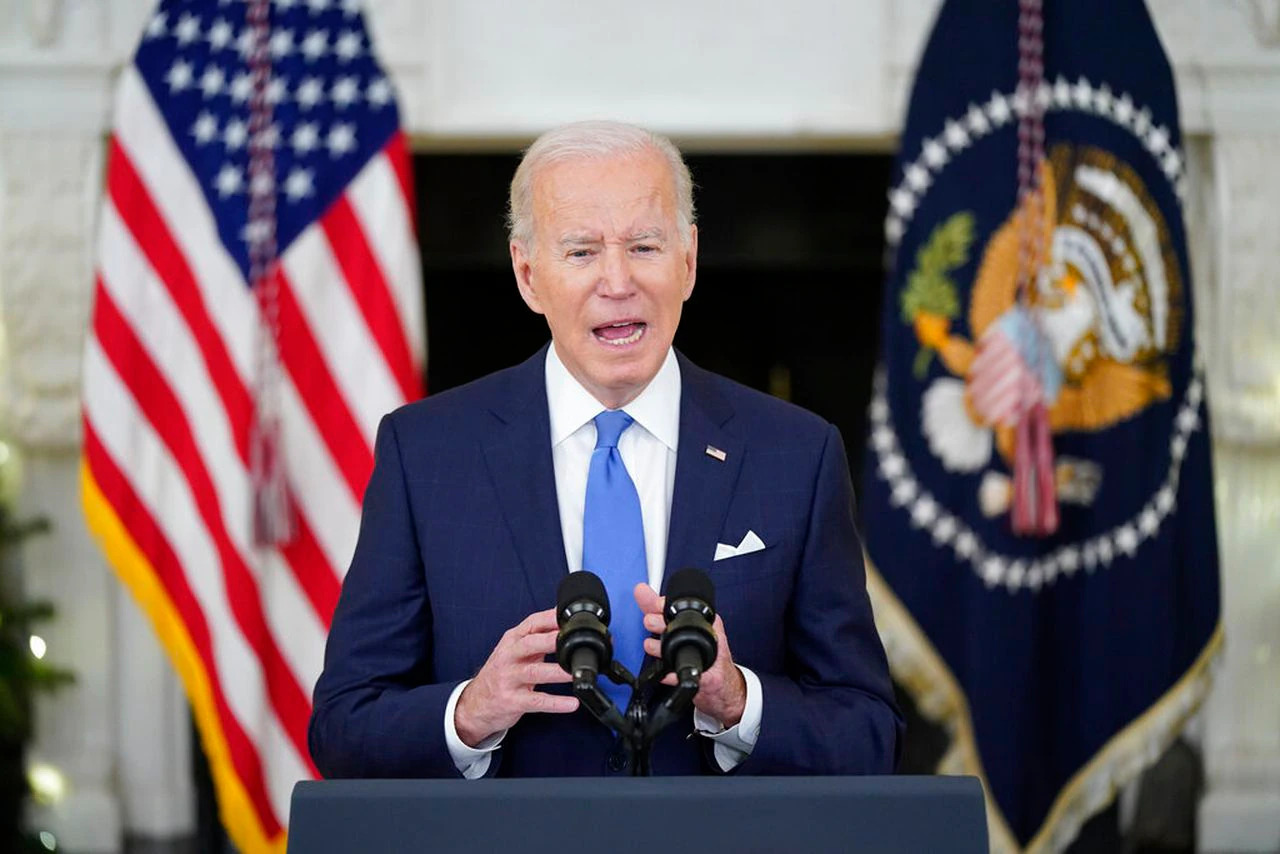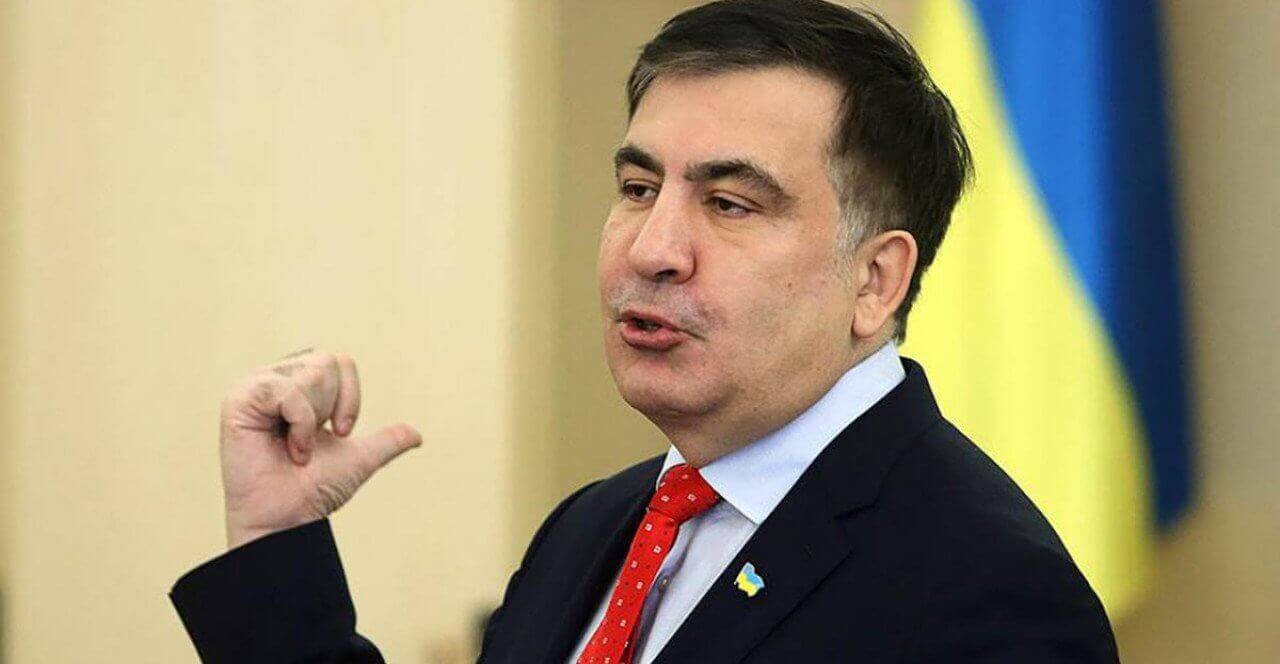South Asia
According to the Indian Ministry of Information and Broadcasting, two websites with content on Kashmir and 20 YouTube channels have been blocked because they were being run by a “coordinated disinformation network operation from Pakistan.” The statement said that the channels were posting “divisive” content on issues such as Kashmir, the Ram Mandir, and the death of General Bipin Rawat. [Hindustan Times]
On Tuesday, Pakistan successfully test-fired its homegrown enhanced range version of the surface-to-surface Babur cruise missile. The Army said that the success of the test meant that it is capable of attacking targets at land and sea “with high precision.” [Deccan Herald]
Central Asia and the Caucasus
Thousands of supporters of jailed former Georgian President Mikheil Saakashvili on Tuesday took to the streets of Tbilisi as reports emerged that he has been tortured in prison. Protesters gathered in front of the parliament building and demanded Saakashvili’s immediate release. Opposition leader Nika Melia announced a “mass hunger strike that will not end until Mikheil Saakashvili is released from captivity.” [RFE/RL]
Russian President Vladimir Putin and his French counterpart Emmanuel Macron, in a phone conversation on Tuesday, discussed cooperating to resolve the Nagorno-Karabakh issue. A statement released by the Kremlin said that “the leaders expressed satisfaction with how the situation has stabilised” and vowed to restore “normal life [and] economic and transport links” in the region. [Kremlin]
East and Southeast Asia
The United States (US) and Japan have reached an agreement on the cost-sharing of hosting the thousands of American troops on Japanese soil. Between 2022-2026, Japan will spend an average of 211 billion yen ($1.85 billion) per year to host about 50,000 American troops and their families. [The Straits Times]
The United (US) named Undersecretary of State for Civilian Security, Democracy and Human Rights Uzra Zeya as its special coordinator for Tibet. China responded by saying that the appointment is another example of how “the US is interfering with China’s domestic affairs.” [Taipei Times]
Europe
On Tuesday, the United Nations Human Rights Office urged Belarus and Poland to address the crisis at their border, which has left stranded migrants with little access to food, clean water, or shelter in freezing temperatures. [Reuters]
The United Kingdom and Norway reached an agreement on their fisheries access quota for 2022. The two countries will now allow limited access to each other’s waters and exchange data on the fish quotas in the North Sea and the Arctic. [UK Government]
Bulgarian Defence Minister Stefan Yanev on Tuesday said the deployment of the North Atlantic Treaty Organization’s (NATO) troops on Bulgarian territory would violate the country’s national interests. Yanev confirmed that NATO is discussing additional troops deployment in Bulgaria and Romania as a deterrence to Russian aggression. However, Yanev added that Bulgaria, a NATO member since 2004, is ready to respond militarily if needed. [Novinite]
Latin America and the Caribbean
The United Kingdom’s Supreme Court has rejected Venezuelan President Nicolás Maduro’s appeal to gain access to the country’s $1.95 billion worth of gold stored in the Bank of England, thereby overturning an earlier Court of Appeal ruling. Maduro claims the funds would be transferred to the United Nations Development Programme to buy medical supplies to combat the pandemic. The Court ruled that only opposition leader Juan Guaidó, who the UK and 50 other countries still consider to be the legitimate leader of Venezuela, can access the gold. [BBC]
On Tuesday, the Chilean Senate approved outgoing President Sebastián Piñera to extend the state of emergency in the southern regions of La Araucanía and Biobío, which was first put in place in October. Armed forces have been deployed to the region to stem the flow of rising arson attacks, robberies, and other violent crimes. [Telesur]

Middle East and North Africa (MENA)
At least 160 migrants have died as a result of two separate shipwrecks off the coast of Libya over the past week, according to the International Organization for Migration (IOM). There has been a surge in migrant crossings from Libya and 31,500 migrants have been intercepted and returned to Libya in 2021. Moreover, 1,500 migrants have died attempting to cross the Mediterranean Sea to reach Europe this year alone. [Al Jazeera]
A British court has ordered Dubai’s ruler, Sheikh Mohammed bin Rashid al-Maktoum, to pay his ex-wife, Princess Haya bint Al Hussein, $730 million in divorce settlements. Haya has accused Sheikh Rashid of threatening to kidnap her children ever since she fled to the United Kingdom in 2019. A British court said in October that the sheikh had also approved the hacking of Haya’s phone with the Israeli Pegasus spyware. [Associated Press]
North America
On Tuesday, a Boston federal court found Harvard professor Charles Lieber guilty of intentionally hiding his affiliation with, and income from, a Chinese-run educational programme to protect his career and reputation. Lieber, 62, was the former chair of Harvard’s chemistry and chemical biology departments. He was arrested in January for knowingly hiding his ties with China’s Thousand Talents Plan, a programme focussed on recruiting people with knowledge of foreign technology and intellectual property. [NPR]
United States (US) President Joe Biden on Tuesday assured that his flagship spending policy Build Back Better Act would be passed, despite Democrat senator Joe Manchin’s opposition. Speaking to reporters about his historic climate and social spending policy, Biden said, “Sen. Manchin and I are going to get something done,” after Manchin suddenly changed his position on the bill on Sunday. [The Hill]
Oceania
Australian Minister for Trade, Tourism, and Investment Dan Tehan announced a new economic engagement strategy to boost trade and investment ties with Vietnam, with a focus on the education, resources, agriculture, manufacturing, and digital economy sectors. [Minister for Trade, Tourism, and Investment, Australia]
Modelling by Australia’s Doherty Institute has predicted that the country could record almost 200,000 cases of COVID-19 per day by late January or early February if some restrictions limiting human interactions aren’t imposed. The modelling also found the Omicron variant to be more transmissible than the Delta variant, with equal severity. The modelling prepared for the national cabinet also recommended introducing booster shots. [The Sydney Morning Herald]
Sub-Saharan Africa
A report by the Partnership for Evidence-Based Response to COVID-19 surveyed citizens across 19 African countries to find that 78% of people are willing to get vaccinated against COVID-19. However, data from last month shows that only around 7% of the continent has been vaccinated. The willingness to get vaccinated was above 90% in Guinea, Morocco, Mozambique, Tunisia, and Zimbabwe. [Capital News]
Kenya invoked the Bamako Convention to justify its decision to send a cargo ship that was en route to Zanzibar, claiming that authorities had detected high levels of radiation. The Bamako Convention was adopted by the African Union back in 1991 and came into force in 1998; it prohibits the import of hazardous waste. The MV Seago Piraeus will now return to the Nhava Sheva Port in Navi Mumbai. [The East African]

